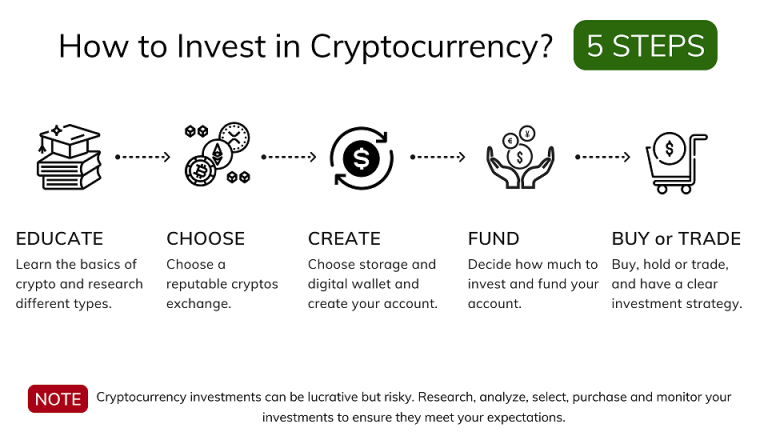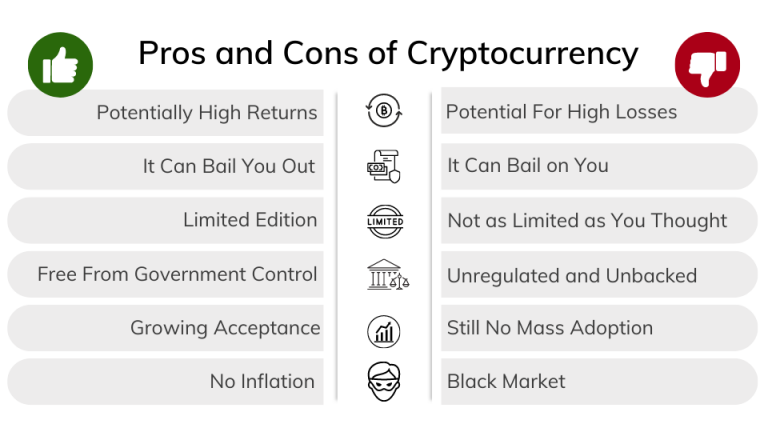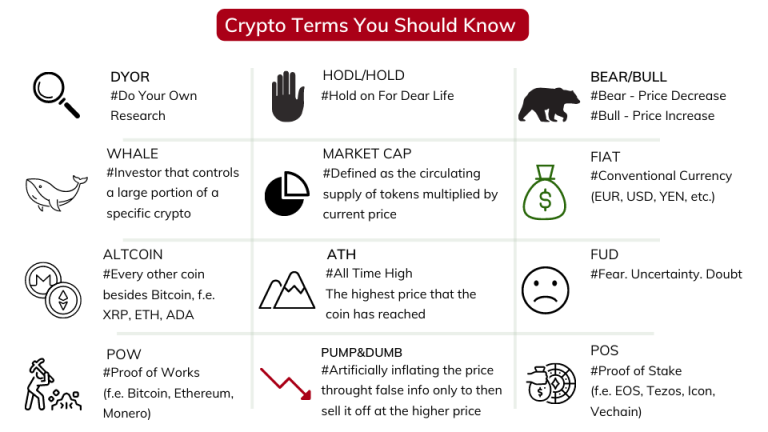Cryptocurrency is an increasingly popular topic in South Africa, and for good reason. With its potential for investment and financial freedom, it’s no wonder many are interested in getting started. If you’re new to the world of cryptocurrency, this beginner’s guide will provide you with all the essential information you need to know.


Cryptocurrency, often seen as a mysterious digital asset, is actually a digital or virtual form of currency that relies on cryptography for security. The beauty of cryptocurrencies lies in their decentralized nature, meaning they are not controlled by any central authority, like governments or financial institutions. Instead, they operate on a groundbreaking technology called blockchain, a decentralized digital ledger that records all transactions across a network of computers.
The king of cryptocurrencies, Bitcoin, was created in 2009 by an anonymous individual or group of individuals under the pseudonym Satoshi Nakamoto. Since then, the crypto space has exploded with thoSouth Africands of other cryptocurrencies, each with unique features and functions. From online transactions to investments and even cross-border money transfers without the need for intermediaries like banks, cryptocurrencies are changing the game.
In recent years, South Africa has seen a steady growth in cryptocurrency popularity. Factors like high inflation rates, volatile currency, and increasing internet penetration have contributed to this surge. As the Rand depreciates, many South Africans are turning to cryptocurrencies as alternative investment opportunities and wealth preservation tools.
The South African Reserve Bank (SARB) has cautiously recognized cryptocurrencies as digital assets rather than legal tender. While transactions and investments are not yet regulated, SARB established a dedicated fintech unit to monitor and assess developments in the cryptocurrency market. Plus, the government is working on drafting a regulatory framework for digital assets.
On the adoption front, numerous South African businesses (both online and offline) now accept cryptocurrencies as payment. Local cryptocurrency exchanges and platforms like Luno and VALR have also emerged to facilitate buying and selling cryptocurrencies in the country.
The growing popularity of cryptocurrencies in South Africa can be attributed to several factors:
With growing interest and adoption by both individuals and businesses, cryptocurrency is making waves in South Africa. As the country faces economic challenges, cryptocurrencies offer potential alternative investment options and financial inclusion for the unbanked population. With increasing awareness and technological advancements, the future of cryptocurrency in South Africa looks brighter than a Bitcoin miner’s screen!
Being the first-ever cryptocurrency, Bitcoin has made quite a name for itself as the most popular digital currency in South Africa and across the globe. Launched in 2009 by the enigmatic Satoshi Nakamoto, Bitcoin allows users to perform transactions without any intermediaries, making it a secure and efficient way to transfer money. South Africans have embraced Bitcoin wholeheartedly, with many investing in it and using it for various transactions. Some local businesses like restaurants and online retailers have even started accepting Bitcoin payments, which has helped strengthen its popularity in the country.
Another fan-favorite in South Africa is Ethereum, with its groundbreaking blockchain technology offering numerous benefits over traditional financial systems. Ethereum’s platform allows for the creation of decentralized applications (DApps) and smart contracts, which lead to more transparent and efficient transactions. As a result, Ethereum has attracted a considerable following among South African investors and developers. Moreover, Ethereum’s native currency, Ether (ETH), has seen significant growth in value, making it a popular choice for long-term investments and short-term trading.
In addition to global cryptocurrencies, South Africa has witnessed the rise of homegrown digital currencies. One example is SAFCOIN, a cryptocurrency launched in 2018 by a South African fintech company. SAFCOIN aims to make digital currency South Africage more accessible for Africans and promote local economic growth by offering a user-friendly platform and various financial services.
Another South African cryptocurrency project is Project UBU (Universal Basic Unit), which aims to provide a decentralized, transparent, and stable digital currency for all South Africans. By issuing UBU tokens to registered users, the project seeks to create a self-sustaining economic ecosystem that can help alleviate poverty and empower individuals.

One of the most convenient ways to buy and sell cryptocurrencies in South Africa is through local exchanges. These platforms facilitate the trading of cryptocurrencies by providing a secure and user-friendly interface. Some of the most popular exchanges in South Africa include Luno and VALR. Luno, a well-established platform, supports trading of Bitcoin and Ethereum, while VALR offers a wider range of cryptocurrencies, including Bitcoin, Ethereum, Ripple, and Litecoin. To start trading, you need to create an account on the exchange, verify your identity, and link your bank account. Once the account setup is complete, you can deposit ZAR and use it to buy cryptocurrencies. Trust me, it’s easier than it sounds!
Peer-to-peer (P2P) platforms like LocalBitcoins and Paxful connect buyers and sellers directly, allowing them to trade cryptocurrencies without the involvement of an intermediary. These platforms offer a range of payment options, such as bank transfers, cash deposits, and even gift cards (perfect for that unwanted birthday present!). To use P2P platforms, you need to create an account, verify your identity, and then search for suitable offers by filtering through various criteria, such as payment method, currency, and location. Once you find a suitable offer, you can initiate a trade and follow the platform’s instructions to complete the transaction. But be cautious – carefully review the reputation and trading history of the seller to minimize the risk of fraud.
Bitcoin ATMs offer a quick and easy way to buy cryptocurrencies using cash or card payments. These machines are located in various public places across South Africa, such as shopping malls and petrol stations (you might even find one while grabbing a snack!). To use a Bitcoin ATM, follow the on-screen instructions to scan your cryptocurrency wallet’s QR code, insert the cash or card, and confirm the transaction. The ATM will then transfer the purchased cryptocurrency to your wallet. Keep in mind that Bitcoin ATMs often charge higher transaction fees compared to online exchanges, so be prepared for that extra pinch.
When buying and selling cryptocurrencies, it’s crucial to be aware of the fees and transaction costs associated with each platform. These fees can significantly impact your overall profit, especially if you trade frequently or in large volumes. Here are some common fees to consider:
To minimize costs, compare the fees of different platforms and payment methods, and consider using platforms that offer fee discounts or free transactions for certain activities. After all, who doesn’t love a good deal?

Cryptocurrency is revolutionizing the online betting industry in South Africa by offering a decentralized, secure, and fast way to make transactions. This is a significant change from traditional banking methods, which often involve high fees, slow processing times, and a lack of privacy. Cryptocurrency allows bettors to maintain their anonymity and avoid currency conversion fees, as well as providing a transparent and provably fair betting experience.
The blockchain technology behind cryptocurrencies ensures that transactions are secure and cannot be tampered with, thus minimizing the risk of fraud. Moreover, the decentralized nature of cryptocurrencies means that bettors do not have to rely on third parties like banks, giving them more control over their funds. Talk about taking matters into your own hands!
A growing number of online betting platforms in South Africa are accepting cryptocurrency as a payment method, catering to the increasing demand for digital currency options. Some popular platforms include:
These platforms provide a seamless betting experience by integrating cryptocurrency wallets and enabling instant transactions, making it easy for bettors to deposit and withdraw funds. No more waiting around for your winnings!
There are several benefits to using cryptocurrency for online betting in South Africa:
While the use of cryptocurrencies is not explicitly regulated in South Africa, the South African Reserve Bank (SARB) has issued several statements regarding their use and potential risks. The SARB has stated that cryptocurrencies are not recognized as legal tender in the country, but it does not currently prohibit their use for online betting.
Online gambling is considered illegal in South Africa under the National Gambling Act of 2004, except for sports betting, which is regulated by the provincial licensing authorities. However, the use of cryptocurrency for online betting exists in a legal gray area, as the current laws do not specifically address digital currencies.
It is essential for bettors to be aware of the legal status of cryptocurrency and online betting in South Africa and exercise caution when participating in these activities. It is recommended to use reputable betting platforms that prioritize security and adhere to responsible gambling practices. Remember, better safe than sorry!

As the world of cryptocurrency continues to grow in South Africa, it’s crucial to ensure the safety of your digital investments. The first step to securing your assets is choosing the right wallet. There’s a wide range of wallets available, including hardware wallets, software wallets, and online wallets. Hardware wallets like Ledger and Trezor offer top-notch security by storing your private keys offline. On the other hand, software wallets can be installed on your computer or mobile device, while online wallets can be accessed through a web browser.
To take your security game to the next level, consider these tips:
As the crypto landscape evolves at lightning speed, South African regulators are working hard to keep up. Currently, cryptocurrencies are not recognized as legal tender in South Africa, and the South African Reserve Bank (SARB) does not oversee or regulate them. However, SARB is proactively monitoring the impact of cryptocurrencies on the financial system.
In 2018, SARB established a fintech task force to review the regulatory framework for cryptocurrencies. This task force released a consultation paper in 2019, outlining recommendations for cryptocurrency regulations in South Africa. The paper suggests that cryptocurrency service providers, such as exchanges and wallet providers, should be subject to registration and licensing requirements. Additionally, they should implement anti-money laundering (AML) and counter-terrorism financing (CTF) measures.
SARB plays a crucial role in maintaining the stability and integrity of the South African financial system. As part of its mission, the central bank actively monitors developments in the cryptocurrency space and collaborates with other regulators and industry stakeholders to establish a comprehensive regulatory framework.
Besides the fintech task force, SARB has launched Project Khokha, a proof-of-concept designed to explore the use of distributed ledger technology (DLT) for interbank payment settlements. The project aims to assess the potential benefits, risks, and challenges associated with DLT and its application in the South African financial sector.
Although SARB does not currently regulate cryptocurrencies, it has issued warnings to consumers about the risks associated with investing in digital assets. The central bank advises investors to exercise caution and ensure they understand the potential risks before diving into the world of cryptocurrencies.
The future of cryptocurrency regulation in South Africa will likely be shaped by SARB and other regulatory bodies’ ongoing efforts to develop a robust framework that balances innovation with consumer protection and financial stability.
As the regulatory landscape evolves, South Africa may introduce stricter requirements for cryptocurrency service providers, such as registration, licensing, and compliance with AML and CTF regulations. These measures would help enhance transparency and trust in the industry while reducing the risks associated with money laundering and terrorist financing.
In a nutshell, securing your cryptocurrency investments and staying informed about the regulatory environment in South Africa is essential to successfully navigating the world of digital assets. By adopting best practices for wallet security and understanding the role of SARB and other regulators, you can make more informed decisions about your cryptocurrency investments and stay ahead of the game in this rapidly evolving space.

